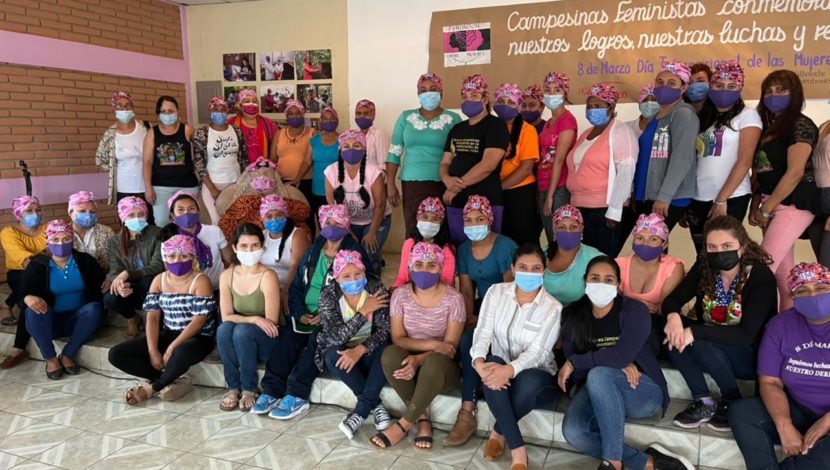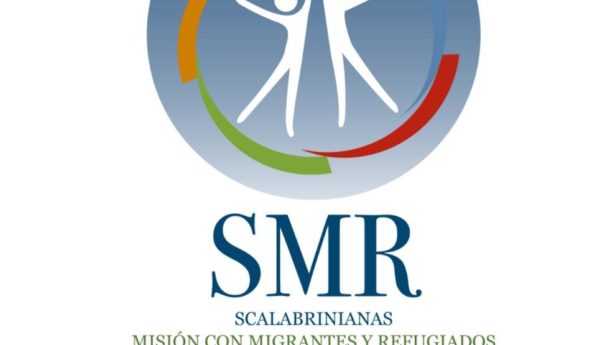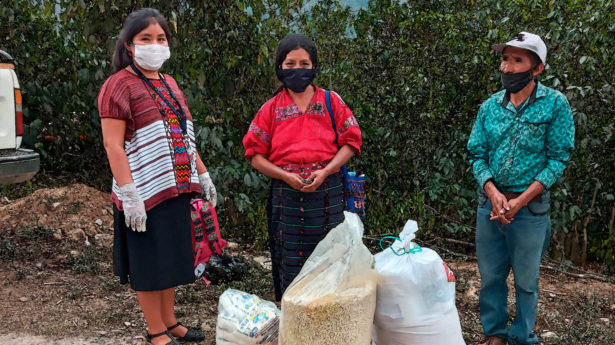The Unitarian Universalist Service Committee advances human rights through grassroots collaborations.
“If Women Lowered Our Hands, Even the Sky Would Fall”: Celebrating Women’s History Month

By on March 30, 2021
Pictured: Participants in FEM’s March 8th International Women’s Day commemoration.
On March 8, people across the world marched, demonstrated, and gathered to mark International Women’s Day, some in spite of heavy-handed state responses. Officially recognized by the United Nations in 1977, the origins of International Women’s Day trace back to the 19th century women’s rights movements and early 20th century socialist and women-led labor organizing. Only two years after the celebration of the first National Women’s Day in the United States, the March 25 Triangle Shirtwaist Fire in New York City killed 146 women and girls, the majority of whom had immigrated from Italy and Russia, a tragic demonstration of the need for women’s organizing and activism against systems of oppression.
Over the last year, COVID-19 has made it even easier to see just how the historic and systemic inequities imposed by capitalism and patriarchy play out: In the United States and around the world, women have borne the brunt of the pandemic’s health and economic impacts, with the effects multiplied when accounting for race and class.
Beyond a handful of days in March, our partners engage in vital work all year that highlights and combats the structural causes of gender-based violence, economic inequalities, corruption, and environmental degradation that force people to leave their homes. Gender is one of the primary determinants of migration, and the already-high risks that it brings are even greater for women, girls, and LGBTQ+ people.
On March 5, UUSC partners Foro de Mujeres por la Vida in Honduras and the U.S.-based National TPS Alliance participated in a virtual gathering of Central American women, hosted by Radio Jornalera.
Noemí Dubón, with Foro de Mujeres por la Vida, noted that “migration has always existed in Honduras, but over the last several years it has been increasing because of the levels of violence and corruption that have driven this country into poverty. We know that Honduras is not a poor country: it has been made poor through corruption.” This profound corruption goes hand-in-hand with failures of the institutions of justice and extraordinarily high rates of impunity. When women are victims of violence or femicide, Noemí says, “and the families seek justice, demanding that the cases be investigated, there is never any response…we don’t even have shelters for those that report [violence]. That is why people leave; every day, women are facing poverty and the lack of public policies for education, health, and some basic level of safety. All they offer us are more soldiers, more police, more weapons.”
Claudia Lainez, regional organizer with the TPS Alliance joining the conversation from Oakland, California said that “sometimes, living here, we forget just a little about everything that is happening in our countries and it’s hard. We have our struggle here, but in Central America and Latin America, the struggle is even bigger, it’s for life itself. It’s so difficult to hear these stories and know that even though we suffer different kinds of abuses here, women and girls in Central America and Latin America are suffering the same or even worse than before.”
The situation in Guatemala is similar, as detailed by the participants in the “Weaving Life Without Violence” virtual gathering hosted by UUSC partner Asociación Pop No’j for members of their Network of Mayan Defenders, which facilitates education and support for women on the subject of gender-based violence.
“It’s true that here in Guatemala women are suffering economic, physical, and psychological violence. Unfortunately, the State is not interested in how we are living at home,” said Mirian Coy from Patzún, Chimaltenango.
“Many women have suffered economic violence and don’t have access to justice,” said Feliciana Ortíz. “I join in this demand for justice. As Indigenous women, we are asking to be treated well and we say enough already with racial discrimination…We also ask all women to join us in this fight, and we ask our brothers to join, too, because what we want is a life without violence, a life of equality.”
In confronting the challenges presented by the pandemic, Francis Ortiz explained that fortunately, “before COVID, I had already started growing my garden, and I have kept doing it which means that I don’t need to go to the market as much.” Faced with acute food shortages, many families have turned to cultivating vegetable gardens at home, which have been particularly important for women. Speaking from the city of Huehuetenango, Carmencita Roblero emphasized the importance of these household gardens, which “are a way that women have of saying ‘we’re here, we’re present in our home, in our house’.”
Developing agricultural capacity for women has long been a central project for UUSC partner Fundación Entre Mujeres (FEM) in Nicaragua. On March 8, 60 FEM members gathered to celebrate their achievements over the past year while remembering the Triangle fire and “the women workers who burned to death 111 years ago for demanding their labor rights.”
Farming activities have traditionally been the domain of men, which has meant many challenges for those who have developed their own plots and productive projects for economic independence. FEM member Luz Marina Valle shared the progress she has made, saying “I would have liked for the State to provide land to women, so that others like me could have the opportunity to plant, grow, and enjoy the variety of food that I have for my home and my community; I’ve even been restoring a forest, which I never thought possible.”
COVID-19 has compounded the existing threats to women’s safety and wellbeing, and public health restrictions have made in-person gathering more difficult, but women are finding ways to continue the walk toward justice while supporting one another. “This weekend is one of a lot of work, to remind governments and society that women are suffering through many things that aren’t being given any attention,” said Claudia Lainez at the Radio Jornalera gathering. “We’re still in the fight. Sometimes it’s difficult with everyone closed in at home, but we’re adapting to this [virtual] platform to keep organizing.”
In the Weaving Life conversation, Maily Sales said COVID “has had a profound effect on our lives, and we’re facing stressful challenges that generate strong emotions, but today is such an important date and COVID has not kept us from commemorating the efforts of women and girls from around the world.”
From New York City, Aneiry Zapata, member of UUSC partner the Queer Detainee Empowerment Project (QDEP) reflected: “Women, we are in the fight for the abolition of prisons and the abuse that is done to our bodies, we will reform the world in which we live. We need Black, Indigenous, Women of Color and low-income women…because only we know what is lived in our homes. I want it to be recognized everywhere that ‘if women lowered our hands, even the sky would fall’.”
***
About UUSC: Guided by the belief that all people have inherent worth and dignity, UUSC advances human rights globally by partnering with affected communities who are confronting injustice, mobilizing to challenge oppressive systems, and inspiring and sustaining spiritually grounded activism for justice. We invite you to join us in this journey toward realizing a better future!
Image Credit: Fundación Entre Mujeres

